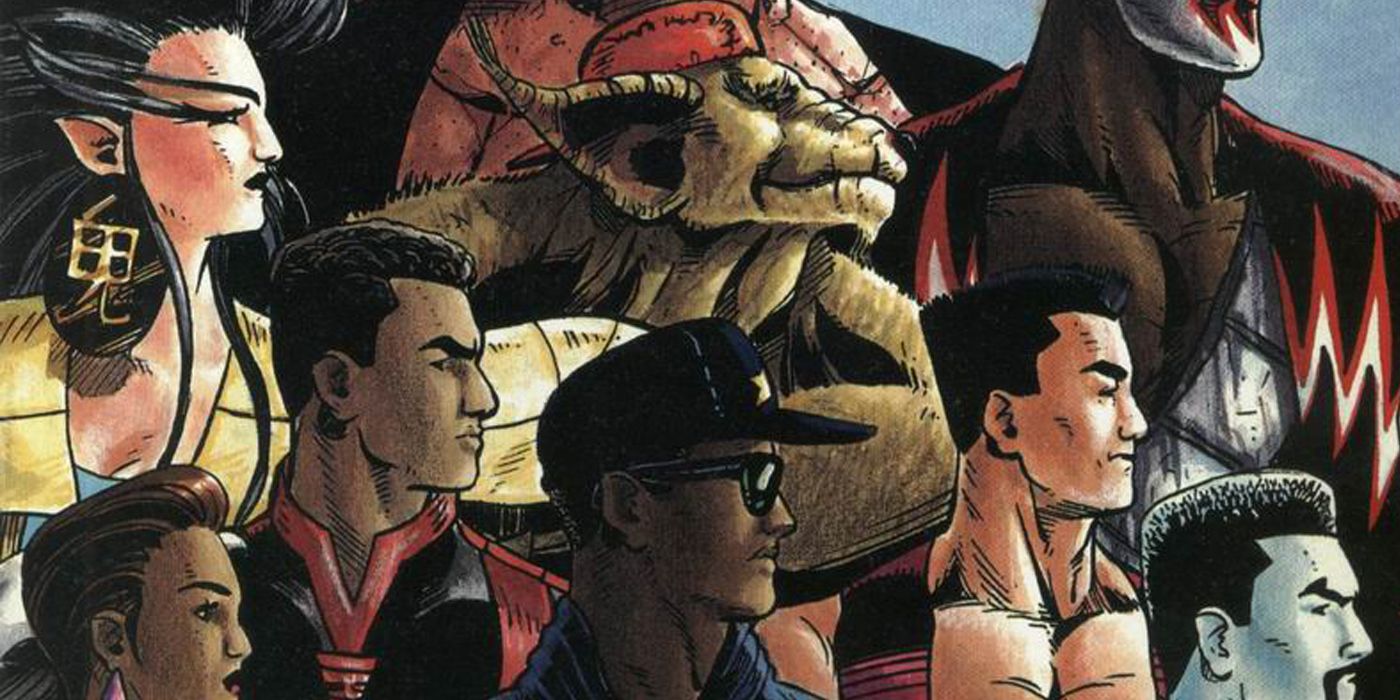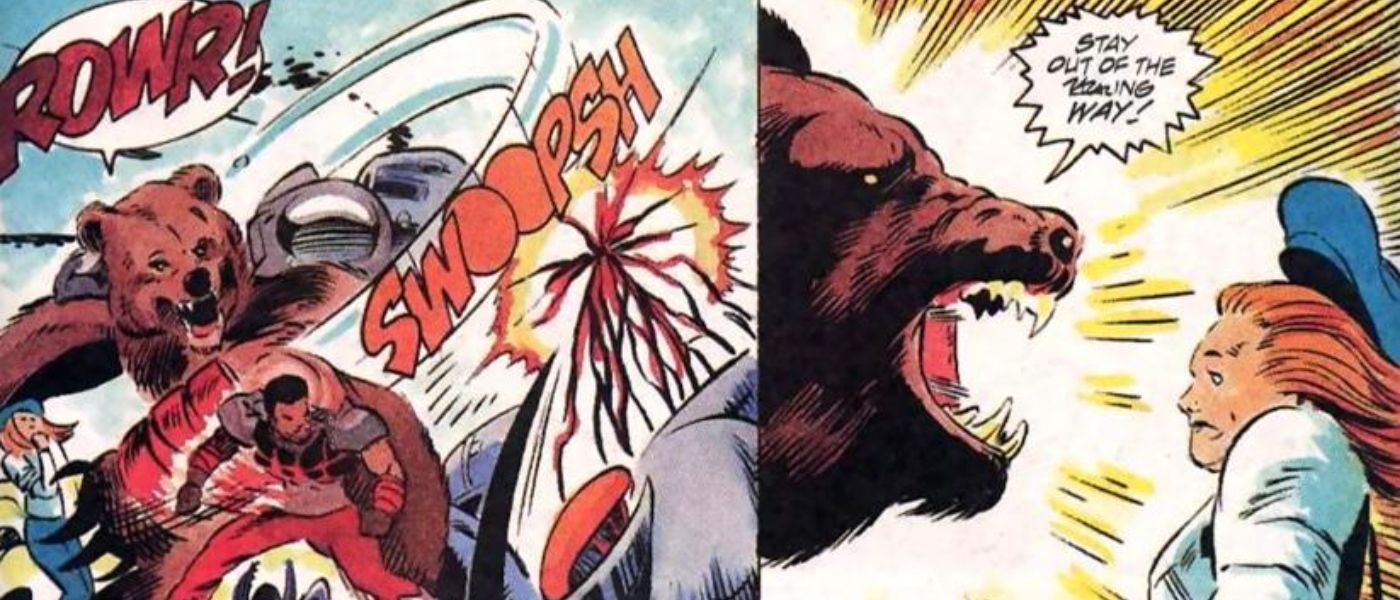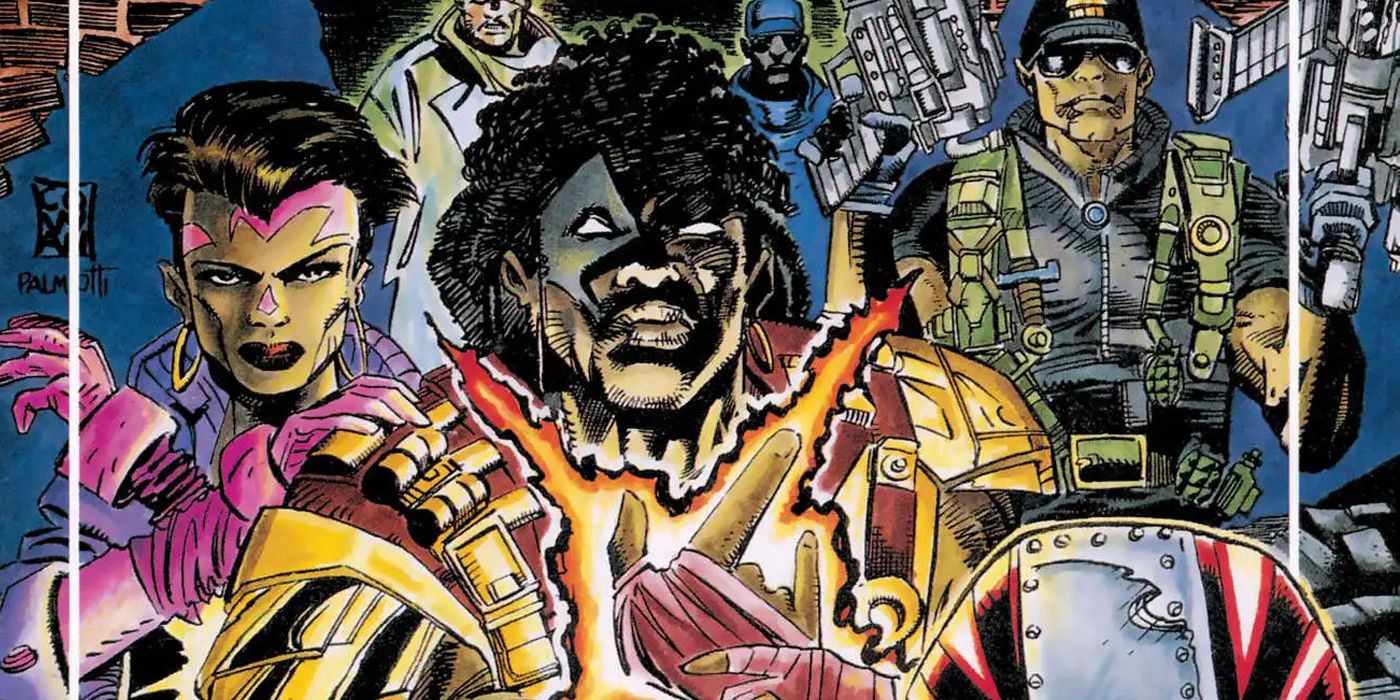The DC imprint Milestone Comics has always been at the forefront of diversity and representation in superhero comics, represented in both the creative teams behind the books and the characters who starred in them. One of the best examples of this was the Blood Syndicate book that featured superpowered characters from all different ethnicities, nationalities and walks of life.
Masquerade was the requisite shapeshifter of the Blood Syndicate and also one of the first transgender characters to have a prominent role in comics. This is amid all of the other sexual and racial diversity on the team, showing how a seemingly typical '90s team could become much more than the sum of its parts.
Who Is Milestone's Masquerade?
Masquerade debuted in the first issue of Blood Syndicate, and he was a former member of initial leader Holocaust's Paris Island Bloods. Eventually joining the newly formed "Blood Syndicate" after the Big Bang, he gained the power to transform and shapeshift, namely into the forms of animals. Whereas comics at that time featured fairly tame versions of this power in characters like Beast Boy and Wolfsbane, Masquerade would casually tear opponents limb from limb, befitting the violence of '90s comics.
It is eventually revealed, however, that Masquerade is biologically a woman. Having felt since youth that she was truly a man, Masquerade took on a masculine identity even before the Big Bang. With his new powers, Masquerade truly was able to be the man that he felt he was, although a tumultuous battle led to an injury where he subconsciously reverted to his biological form. A team member realized this, and Masquerade blackmailed him in order to keep the secret.
Masquerade would briefly try to take over leadership of the Blood Syndicate after seemingly abandoning the team. In an effort to be better accepted, Masquerade took on the form of the team's deceased leader Tech-9, although this ruse was later uncovered. Upon finally revealing his biological sex, Masquerade left the team, having grown to dislike them.
The Diversity of the Blood Syndicate
Masquerade was one of several diverse members of the Blood Syndicate and Milestone Comics in general, with Masquerade and other members of the team being multiple minorities. Many of the Blood Syndicate's members were black, Latino or mixed race, with Masquerade being Jamaican and Wise Son and Holocaust being African-American. Fade and his sister Flashback were Dominican, who are typically classified as Afro-Latino. Likewise, Fade was gay, a secret which Masquerade kept after overhearing the revelation. Tech-9 was Puerto Rican and Brickhouse and Aquamaria were also ambiguously Latin, while Third Rail was Korean. In fact, the only Caucasian member of the Blood Syndicate was Boogieman, whose power allowed him to transform into a humanoid rat.
These characters were not defined by their ethnicity, nationality or sexuality, although these did inform their characterizations. Fade and Masquerade both displayed the homophobia of the era, with these mentalities revealed to be forms of self-hate. Other examples of sexual diversity in the line included Static's best friend coming out as gay and a miniseries starring the vigilante Deathwish featuring a pre-transition transgender character. Although comics nowadays are much more well-known for their featuring heroes and villains of various ethnicities and backgrounds, this current diversity got its start in books like Blood Syndicate, proving that the original Milestone comics were truly ahead of their time.



